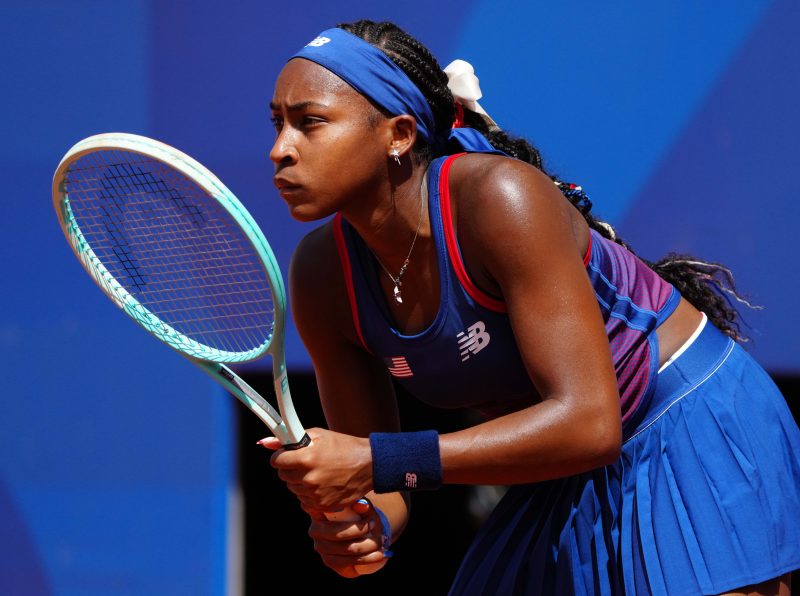PARIS — Tennis star Coco Gauff, who was chosen as the Olympic opening ceremony flag bearer for Team USA, is out of the women’s singles competition after losing 7-6, 6-2 to Donna Vekic of Croatia.
Ranked No. 2 in the world, Gauff still has a chance to take home medals in doubles and mixed doubles, but her performance Tuesday was surprising and disappointing given how solid she looked in the first two rounds of the tournament and her strong track record on the clay of Roland Garros during the French Open.
‘(A medal) is the main goal,’ the 20-year old Gauff said. ‘I just have to go to the locker room and reset and get ready.’
It’s also a result with some controversy attached.
2024 Olympic medals: Who is leading the medal count? Follow along as we track the medals for every sport.
➤ The USA TODAY app gets you to the heart of the news — fast. Download for award-winning coverage, crosswords, audio storytelling, the eNewspaper and more.
Down 7-6, 3-2 in a match that was tightly contested all the way through, Gauff faced a massive break point at 30-40. As she retreated to hit a backhand, the linesperson made an out call simultaneous with Gauff’s swing, and seemingly before she completed the motion with her racket. Gauff immediately decelerated, causing a miss.
She believed the point should have been replayed, which is the rule if the outcall impacts her play on the ball. But the chair umpire saw it differently, overruling the out call and awarding the point to Vekic.
A five-minute argument ensued in which Gauff called the tournament supervisor and appeared to be crying, while at one point saying she ‘constantly’ felt cheated by similar calls and also referenced officiating controversies involving Serena Williams.
Shortly after the match, Gauff lamented the fact that tennis does not use a video replay system to adjudicate situations where there’s a split-second judgement call that is difficult to make.
‘I mean there’s been multiple times this year where that happened to me where I feel like I always have to be, you know, an advocate for myself on the court,’ Gauff said. ‘And I feel like in tennis we should have a (review) system because, you know, these points are big deals. And yeah, usually afterwards they apologize. So it’s kind of frustrating, you know. Sorry doesn’t help you once a match is over.’
When the match ensued, Gauff had an opportunity to get it back on serve in the next game, getting to 0-40 on Vekic’s serve as the crowd began to boo the umpire and get a bit rowdy. But Vekic managed to settle down, reel in the break points and stretch out to a 5-2 lead. A rattled Gauff was then easily broken, allowing Vekic – who recently made the Wimbledon semifinals – to advance.
‘I mean, it’s a very tricky situation,’ Vekic said. ‘I personally thought the umpire made a good decision because the call came quite late, but I have to rewatch it. It’s tough to know exactly in the moment. But yeah, after that with the crowd, it was not so easy. I lost my concentration for a couple points, but I’m happy that I managed to come back in that game because it was an important game.’
Still, even Gauff didn’t blame the loss on one controversial call. The fact is, she seemed on her way to an easy first set win but couldn’t secure a second break and played a poor game at 5-3 while trying to serve it out. Then in the tiebreaker, Gauff made a poor choice to try a drop shot at 7-7 when she had control of the rally, pushing it into the net.
Gauff was also up a break early in the second set before quickly handing it back — a trend that has plagued her in some big matches since winning last year’s US Open title.
‘Today was just a tough match, and I just have to figure out how to do better in those moments with closing out those sets,’ she said. ‘I can’t say I would have won the match if I would have won that (controversial) point. But for sure, you know, being down a break whereas maybe replaying that point can make a big difference in that game. But I’m not gonna sit here and say one point affected the result today because I was already on the losing side of things before that happened.’






